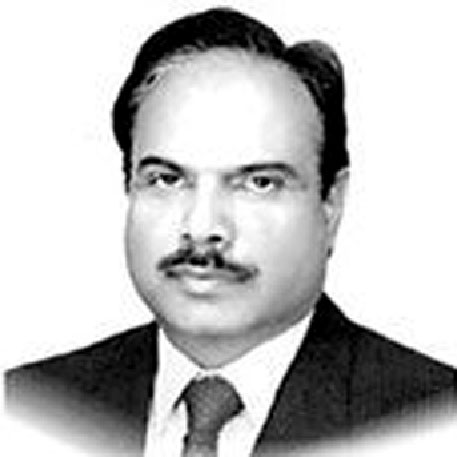Kanwar M Dilshad
SPECIFIC aspects that could benefit from review include the implementation of a substantially revised legal framework the work of election administration at all levels, including the on-going efforts of the authorities to prevent proxy voting and the conduct of election day procedures, the new system of voter registration and the environment and conduct of the electoral campaign, including media coverage. On this basis, and despite outstanding issues with regard to the respect of fundamental freedoms, the ODIHR NAM recommends the deployment of an election observation mission for the 2019 parliamentary elections. In addition to a core team of experts, ODIHR will request the secondment by OSCE participating States of 30 long-term observers to follow the election process countrywide, as well as 250 short-term observers to follow Election Day procedures. In line with ODIHR’s standard methodology, the EOM would include a media monitoring element.
Background and political context: Uzbekistan is a republic with a strong presidential system in which the executive branch exercises wide authority relative to Parliament. Since Shavkat Mirziyoyev was elected President of Uzbekistan in December 2016, the country is experiencing a new pace of ambitious reforms targeting the country’s economy and the governance system. ODIHR NAM interlocutors underscored in particular the abolishment of currency controls, visa liberalization for foreigners, rapprochement with neighbouring countries, release of a number of political prisoners and the reforms of the law-enforcement bodies as some of the most tangible results of the reforms implemented in the country.
Electoral system and legal framework: Parliament (Oliy Majlis) comprises two chambers – a 100-member Senate and a lower chamber with 150 members, both with five-year terms. The composition of the Senate is based on territorial representation, with 6 members indirectly elected from each of the 12 regions, city of Tashkent and the Republic of Karakalpakstan, and 16 Senators appointed by the President. The members of the lower chamber are elected from single-mandate majoritarian districts. If no candidate receives majority of the votes cast, a second round between the two leading candidates will be held in two weeks.
There is no minimum voter turnout requirement for the elections to be valid. Election to the local and regional councils will be held concurrently with the parliamentary ones. The legal framework for parliamentary elections comprises the Constitution, adopted in 1993 and last amended in September 2014, and a new Election Code, adopted in 2019 following a previous ODIHR recommendation. The legal framework for elections also includes the Law on Political Parties, the Law on Financing of Political Parties, relevant provisions of the Criminal Code and the Code of Administrative Offences, and regulations of the Central Election Commission (CEC).
The Election Code unifies five different laws, which regulated the conduct of presidential, parliamentary and local elections, outlined guarantees of citizens’ suffrage rights and established the framework for activities of the CEC. As part of a follow-up process to ODIHR’s electoral recommendations, the authorities requested an opinion of the ODIHR and the Council of Europe’s European Commission for Democracy through Law (Venice Commission), which together provided extensive comments and recommendations on the draft text. The Election Code addresses certain previous ODIHR and Venice Commission recommendations, including the removal of provisions for reserved seats in the lower chamber of parliament previously filled through indirect election, removal of undue restrictions on voting rights based on ongoing criminal proceedings or a conviction, introduction of a maximum permissible deviation in the size of electoral districts, revision of candidate support signature requirements and allowing voters to sign in support of more than one prospective electoral contestant.
All election related expenses were funded by the state. The amount of state funding allocated to a political party depends on its number of registered candidates. For these elections, this amount is expected to be set at UZS 10mln (an equivalent of some EUR 1,000) per candidate. Private funding specifically to parties or candidates for campaigning is prohibited; however, funds may be donated to the CEC which is required to spend them during election campaign or to disturb them equally among contestants. Donations from foreigners and foreign entities are prohibited. The provision of financial payments or gifts to voters during campaign events is not permitted. The electoral system of Uzbekistan is near to the electoral system of Pakistan to some extent, however ground reality is that the electoral laws of Uzbekistan are better than those of Pakistan in order to eliminate the family politics. First past the post system is negation to the spirit of democracy and Pakistan electoral system was taken from the British parliament. Concluded
—The writer is former Federal Secretary Election Commission of Pakistan and currently Chairman National Democratic Foundation.










